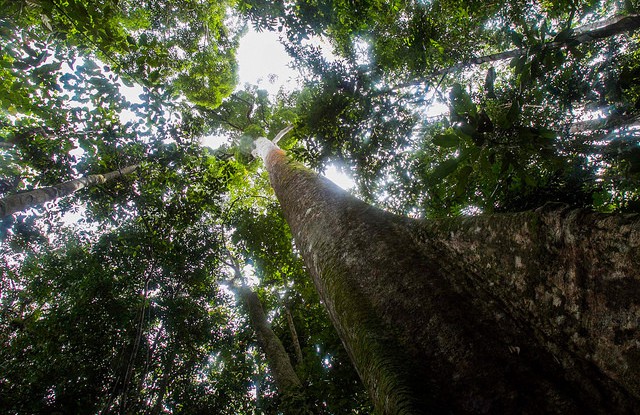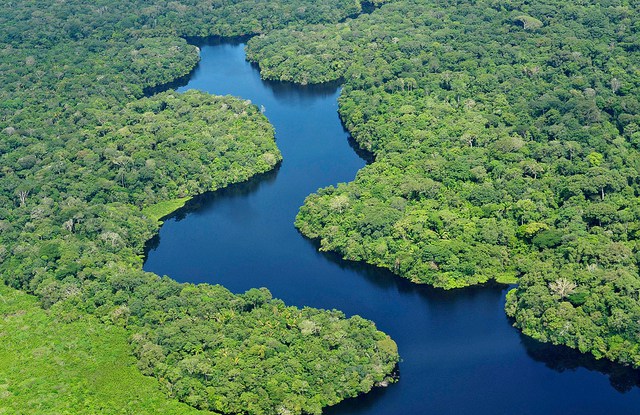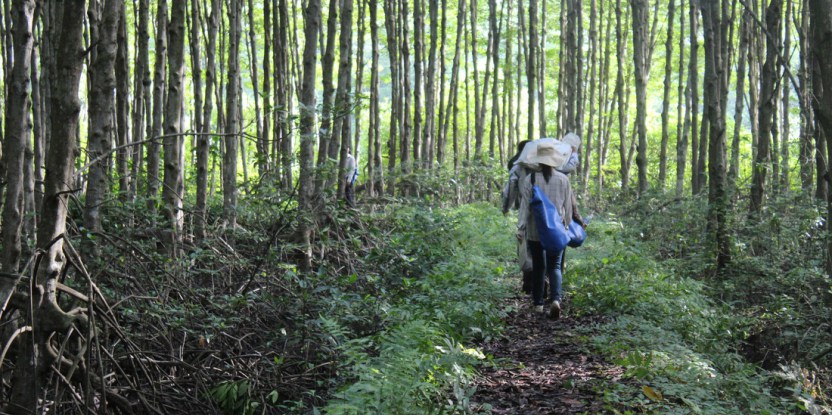
Editor’s Note: REDD+ will be a key theme of discussion at the upcoming Forests Asia Summit, 5-6 May in Jakarta, Indonesia. One discussion forum at the Summit, Seeing Green in REDD – sharing experiences on the equity and economics of REDD+ pilot projects, will draw together successful experiences in implementing REDD+ projects on the ground, with an emphasis on the challenges to finding the elusive win-win between social equity, forest protection, and economic growth. The session will highlight practical project implementation, coordination, and support experiences of the United Nations Office for REDD+ Coordination in Indonesia (UNORCID), as well as the regional and global experiences of the tri-agency UN-REDD Programme. The range of projects presented will cover a spectrum of countries in varying stages of development in the ASEAN region, and also along the spectrum of REDD+ implementation. Read more here.
With Indonesia’s pro-environment president Susilo Bambang Yudhoyono leaving office this year, questions are arising about how the change in the presidency will affect the country’s efforts to cut its greenhouse gas emissions by reducing deforestation.
But presidential backing for a reform may be less important than public support and a shift in political culture, an analysis of Indonesian politics and REDD+ suggests.
“There are many exciting ongoing reform processes, but many are facing political barriers in the way the system works, how the public and the state operates, and the relationship between the government and the people,” said Cecilia Luttrell, Senior Research Associate at the Center for International Forestry Research (CIFOR) and the study’s lead author.
“These problems are deeply embedded historical aspects that can’t be changed simply with a new regulation or a new institution. There is a need to look more widely to find ways to empower those who can bring about change,” she added.
TREE CHANGE
Under the Yudhoyono administration, Indonesia has introduced legal reforms and institutions such as the REDD+ Agency to move ahead with REDD+, or Reducing Emissions from Deforestation and forest Degradation, an international mechanism for cutting carbon emissions from land-use change. Under the UN-backed scheme, tropical forest countries receive financial payments in return for keeping their trees standing — and hence maintaining or increasing carbon stocks.
REDD+ is seen as having great potential in Indonesia, where about 75 percent of greenhouse gas emissions come from the conversion of forest to farmland, agriculture and peat fires. In 2009, Yudhoyono committed Indonesia to emission reductions of at least 26 percent by 2020, with forests and peatland a cornerstone of the strategy.
But deforestation in Indonesia is intricately linked to the structure of the country’s economy and its reliance on natural resource extraction, so protecting forests requires a fundamental change to the way business and politics operate.
And this raises the question of where that change can come from.
“When implementing reforms, there is a tendency to concentrate on changes to institutions. Although that’s a necessary part of it, a country’s political traditions are powerful and can both block and enable attempts to change,” Luttrell said.
Climate change is a less compelling issue than corruption, for example, because corruption has clear relevance to daily life, and the technical details are easier to understand
The same may apply to any of the countries preparing for or implementing REDD+, she added.
“Although political systems differ, understanding the political context and traditions can shed light on how to go about creating change in any country,” she said.
PUBLIC PRESSURE
For the case of Indonesia, Luttrell and her colleagues analyzed all the country’s political power bases: the president, political parties, bureaucracy, private sector, local government, international players and the public.
They concluded that reforms need not only presidential support but also the engagement and ownership of the parliament and the bureaucracy, as Indonesia’s formal political system curtails the president’s power — a response to 32 years of authoritarian rule under former president Suharto. Several other aspects of the country’s political system can also weaken or even obstruct reform efforts, particularly the nature of coalition politics, the politicization of the bureaucracy, and persistence of relationships between businesses and government.
This has not stopped the Indonesian government from making major reforms, one of the most notable of which targets corruption: the creation of the Corruption Eradication Commission (KPK).
“There was something additional in that case, and that was the public mobilization about the issue of corruption,” Luttrell said.
“That public support gave the KPK additional legitimacy.”
When the commission was caught in conflicts with the police and government in 2009, the president’s support of anti-corruption was important, but it was the public mobilization — demonstrated through a million-strong online protest group, elections, surveys and civil society and celebrity activism — that added to political support, the study argues.
But, as in many countries, the public are not mobilized in the same way around the problem of deforestation and climate change — and that, Luttrell suggests, is “what is missing from this whole debate.”
“Climate change is a less compelling issue than corruption, for example, because corruption has clear relevance to daily life, and the technical details are easier to understand,” she said.
By contrast, climate change tends to be portrayed as an international problem, she added.
“Mobilizing public and hence political support around deforestation and climate change could therefore be a matter of demonstrating to the Indonesian public just why this matters to them.”
For further information about the topics in this research, please contact c.luttrell@cgiar.org.
This research was carried out as part of the Global Comparative Study on REDD+ and the CGIAR Research Program on Forests, Trees and Agroforestry and was supported by NORAD, AusAID, DFID, the European Commission, the Department for International Development Cooperation of Finland, and the David and Lucile Packard Foundation.
We want you to share Forests News content, which is licensed under Creative Commons Attribution-NonCommercial-ShareAlike 4.0 International (CC BY-NC-SA 4.0). This means you are free to redistribute our material for non-commercial purposes. All we ask is that you give Forests News appropriate credit and link to the original Forests News content, indicate if changes were made, and distribute your contributions under the same Creative Commons license. You must notify Forests News if you repost, reprint or reuse our materials by contacting forestsnews@cifor-icraf.org.

